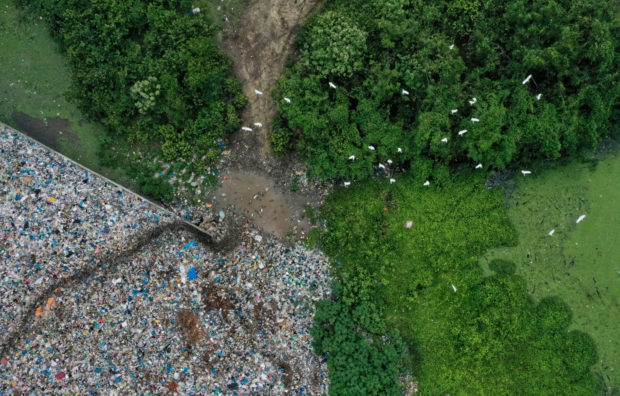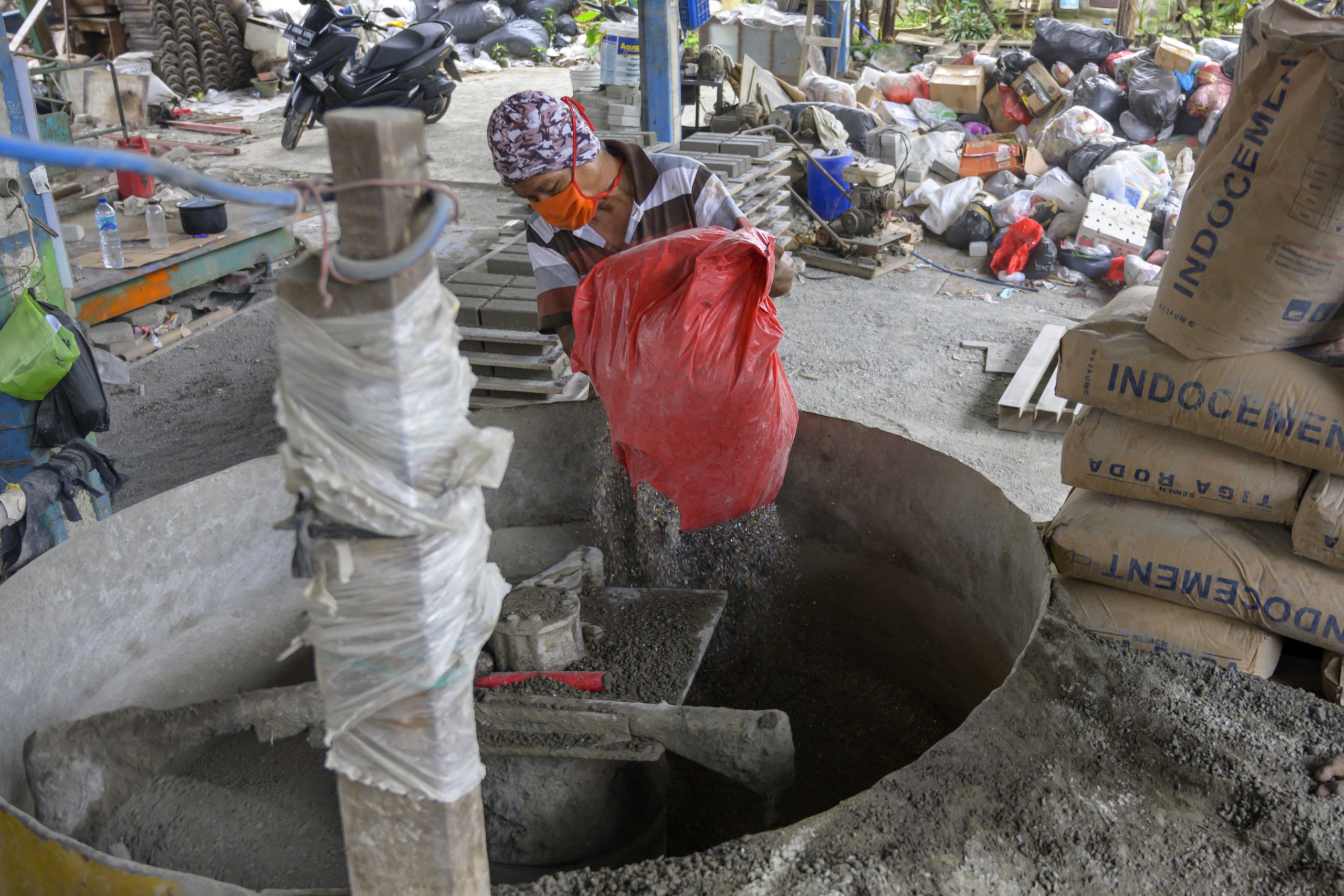Indonesian women take on plastic waste brick by brick
JAKARTA — Alarmed by the mountains of plastic waste leaching into Indonesia’s waters, two best friends are taking on the environmental menace by turning crisp bags and shampoo packets into paving bricks.
Ovy Sabrina and Novita Tan launched Rebricks after their country drew headlines as the second-biggest producer of marine waste in the world, behind China.
Indonesia has pledged to reduce plastic waste by some 75 percent over the next four years — a mammoth task in the Southeast Asian nation of nearly 270 million people.
The pair got their start two years ago visiting food stalls across the capital Jakarta on the hunt for discarded instant coffee sachets, dried noodle packs and shopping bags.

This photograph taken on April 7, 2021 shows Rebrick founder Novita Tan holding chopped plastic waste, used to form bricks that use the material mixed with cement and sand, at a brick-making factory in Jakarta. – Alarmed by the mountains of plastic waste leaching into Indonesia’s waters, two best friends are taking on the environmental menace by turning crisp bags and shampoo packets into paving bricks. AFP
Thanks to a viral social media campaign, the pair now receive reams of plastic waste packaging from donors across the country.
Article continues after this advertisementThat rubbish flows in daily and is piled high at the little firm’s Jakarta-area factory.
Article continues after this advertisement“It shows how Indonesians have a strong awareness of recycling plastic waste, but they don’t know where to do it,” 34-year-old Sabrina said.
Rebricks staff mulch the packaging into tiny flakes that are then mixed with cement and sand and moulded into building blocks.
They make look like conventional bricks, but break one open and it is dotted with flecks of plastic.
Tonnes of trash

This aerial photo taken on June 5, 2021 shows a flock of birds flying over plastic waste at a collection site in Alue Lim village in Lhokseumawe, Indonesia’s Aceh province. AFP
The two entrepreneurs say their method diverts waste that would have otherwise ended up in a landfill or the ocean — about four tons so far and counting.
“Every day, we can stop about 88,000 pieces of plastic sachets from littering the environment,” Tan said, adding that the company has produced more than 100,000 bricks.
Some Indonesian cities have banned single-use plastics, but waste recycling is still rare.
The problem was underscored in 2018 by the discovery of a dead sperm whale that washed ashore in a national park with nearly six kilograms (13 pounds) of plastic waste in its stomach.

This photograph taken on April 7, 2021 shows workers mixing flakes from recycled plastic waste with cement and sand, at a brick-making factory in Jakarta. – Alarmed by the mountains of plastic waste leaching into Indonesia’s waters, two best friends are taking on the environmental menace by turning crisp bags and shampoo packets into paving bricks. AFP
The Rebricks pair spent two years trying to perfect their method, and picked up hints from a building materials business run by Sabrina’s family.
Some Indonesian entrepreneurs are molding plastic waste into flower vases, umbrellas or purses.
But the two women decided to focus on bricks so they could reach more customers.
“If our approach was to sell expensive decorative goods, there would only be a few people buying our products,” Sabrina said.
The two women hope to expand their company, which employs four people, and said they were in talks with a big consumer-goods firm about a possible collaboration.
Customer Andi Subagio said he had used the eco-bricks for repaving a restaurant walkway.
“They’re not as fragile as conventional bricks because of the plastic inside,” he said. “And it’s about the same price.”